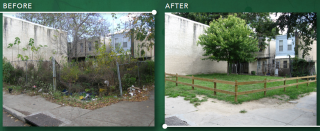
https://www.fs.usda.gov/fs-tags/wellness
With spring approaching and cabin fever at an all-time high, we can now look forward to the many wellness benefits associated with getting outdoors.
“The physiological response to being outside in nature is real, and it’s measurable,” said Michelle Kondo, a research social scientist with the USDA Forest Service’s Northern Research Station. “There are many physical and psychological benefits of nature that scientists have observed, which can better help us understand how nature supports wellness in the body, mind and community.”
1. Physical Wellness
Being outside in green spaces supports an active and healthy lifestyle, which has shown to increase life expectancy, improve sleep quality and reduce cancer risk.
“Many of the benefits afforded to us by green spaces partially results from more opportunities to be active,” said Kondo. “Being in outdoor green spaces can increase a person’s motivation, too.”
For example, some studies have shown that natural outdoor environments in urban spaces are more enticing for physical activity and are more likely to motivate people to exercise, leading to higher levels of fitness.
Studies also show that being outside in nature is relaxing, reducing our stress, cortisol levels, muscle tension and heart rates – all of which are risk factors for cardiovascular disease.
“Since scientists have gained access to data sets, sometimes capturing an entire country’s population of medical records and hospital data, we are finding that patient diagnoses and chronic illness risk are often related to where an individual lives and their proximity to green spaces,” said Kondo. “And that’s a correlation that is likely to strengthen as we conduct more studies.”
Along with supporting physical wellness, nature also bolsters mental wellness in the individual.
2. Mental Wellness
There are many mental wellness benefits associated with being outside in green spaces, such as lower risk of depression and faster psychological stress recovery. Studies have shown that being in nature can restore and strengthen our mental capacities, increasing focus and attention.

One experiment asked two groups of people to perform a mentally strenuous task, such as a math test. One group is asked to take their break in a green space, outside in a park, while the other takes their break near a busy street intersection. The results suggested that the group in the natural setting showed increased focus and higher levels of concentration than the second group.
Another major component of mental health is social connection. The outdoors serves as a venue to come together with friends and family and connect with the larger community.
“This togetherness is especially important for us now,” said Kondo. “We are finding that isolation is a killer, and that the outdoors really provides that space for us to come together under trees or to walk together along trails.”
3. Wellness in the Community
Access to nature can benefit entire communities such as reducing environmental stressors commonly found in cities: air pollution, noise and heat.
“Our research is really focused on different types of environments and how they affect people,” said Kondo. “For example, we have studied vacant city lots, the cleaning and greening of those vacant lots, planting grass and a couple of trees, and the impact that change has on the surrounding community.”

Cleaning and greening have been shown to reduce overall neighborhood crime by 13% and reduce nearby residents’ feelings of depression by 41%.
Nature in densely populated areas also has been shown to affect how people interact with one another. “We’ve found in neighborhoods that receive tree plantings or other greening initiatives, that people tend to have better attitudes towards their neighbors, “said Kondo, “which in turn often results in better relationships.”
Conclusion
Whether it is a park in your neighborhood or exploring the vast landscapes of national forests and grasslands, there are benefits to be had when we step outside.
“Wellness is wholistic in that it is comprised of physical and mental health as well as the health of our communities,” said Kondo. “All of these benefits add up and reduce adverse impacts on our bodies, and have restorative characteristics. So get outdoors and enjoy nature’s gift of wellness.”Wellness, research and development, recreation, Human Health


